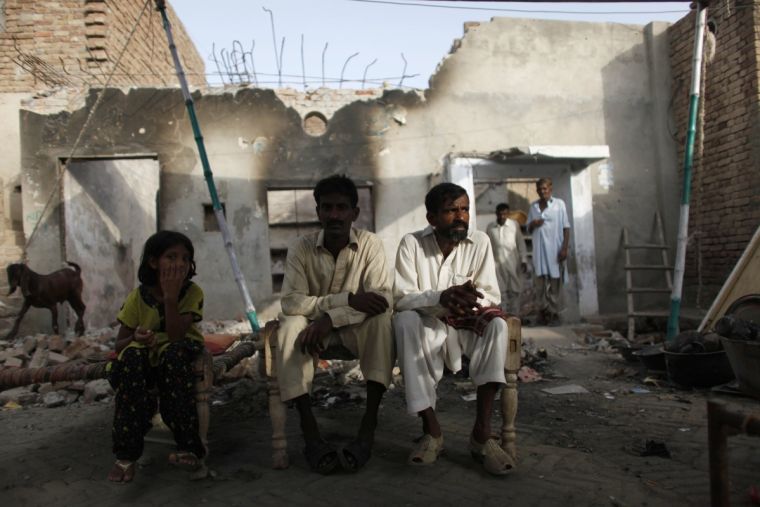Call to end Pakistan's blasphemy laws

A legal charity working for persecuted Christians in Pakistan is urging the country's government to end the misuse of the blasphemy laws.
The blasphemy laws have been blamed for much of the persecution against Christians in Pakistan and for increasing inter-religious tensions across the country.
They stipulate that "whoever by words, either spoken or written, or by visible representation or by any imputation, innuendo, or insinuation, directly or indirectly, defiles the sacred name of the Holy Prophet Muhammad (peace be upon him) shall be punished with death, or imprisonment for life, and shall also be liable to fine".
Minority faith groups in Pakistan are living in constant fear of punishment, as human rights groups say that the laws are frequently misused by extremists. False charges are often bought against Christians in order to settle personal scores or to seize property or businesses.
The Centre for Legal Aid, Assistance and Settlement (CLAAS) is asking the Pakistani government to use Human Rights Day on Tuesday 10 December as motivation to review the blasphemy laws and their place in the legal system.
Rimsha Masih, a teenage Pakistani girl with a low mental age, was recently falsely accused of blasphemy as a result of her Christian faith. Her case was discovered by the Western media and her family has since been taken into protection in Canada.
CLAAS UK Co-ordinator Nasir Saeed says Rimsha is one of the few fortunate ones, however.
"There are many victims of false blasphemy charges who are not lucky enough to have their stories of injustice catch the world's attention," he says.
"These Christians face years behind bars awaiting trial or going through tortured appeals processes. Others are at the mercy of mobs who may destroy their property or kill them. In all these instances, the law is not on their side."
The situation for Christians has since declined, as the Federal Sharia Court ruled earlier this month that the Pakistani government should remove life imprisonment as one of the punishments for blasphemy against the Muslim prophet Muhammad, leaving only the death penalty.
Although it is as yet unclear whether the government will implement this new law, it has the potential to be the cause of even more suffering to minority faith groups in Pakistan.
No death sentence for blasphemy has ever been carried out in the country, but those accused of the crimes are often left in prison for years as appeals are carried out. One such victim is Asia Bibi, a Christian who was sentence to death in November 2010 for blasphemy and who has been in prison ever since.
"It is deeply concerning that Pakistan seems to be taking steps to further entrench the blasphemy laws and make the punishment even more severe. This does not bode well for Christians and other minorities in Pakistan, and the international community has a duty to challenge the country on this issue," asserts Mr Saeed.
CLAAS believes that trade deals should take human rights violations in Pakistan into account.
Mr Saeed ended his statement with a call for religious freedom and equal rights for all people in Pakistan.
"The Pakistani government has a responsibility to ensure extremists do not simply get away with their hate crimes against minorities," he said.
"On Human Rights Day, the international community should send a clear message to Pakistan that all human life should be respected."











